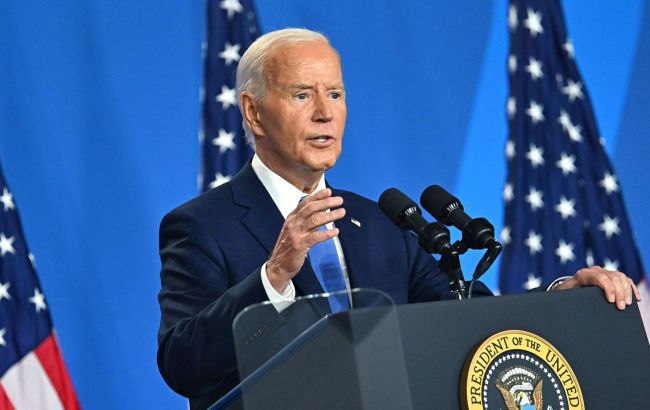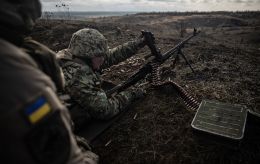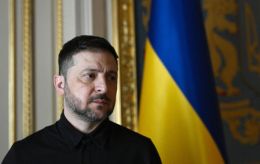Why White House sends Congress report on Ukraine war strategy: Political analyst's view
 Photo: US President Joe Biden (Getty Images)
Photo: US President Joe Biden (Getty Images)
The White House sent a classified report on the Ukraine war strategy to Congress to show where aid funds for Ukraine should be directed and why they should be extended to next year, stated political analyst Oleh Saakyan in a commentary to the RBC-Ukraine.
"We don't know what's inside. And I think that soon we'll only learn some elements of it. But overall, it's clear that the plan will remain secret. It seems to me that one more point should be added to this chain of events. This is a meeting in Italy, where congressmen were shown some elements of the future plan that will be offered to both Biden and presidential candidates," Saakyan said.
In his view, the White House's decision to provide its support plan for Ukraine to American parliamentarians was made in response to this.
"And it seems that this might have been the trigger that prompted the White House to propose its plan. Ukraine is beginning to set the agenda for victory in the US and demonstrate how it can be achieved and what victory means for Ukraine," the political analyst noted.
He added that for a long time, "we were in a kind of vacuum," where the White House, on the one hand, spoke of supporting Ukraine but did not clearly outline how they saw the country's victory in the war with Russia.
"The key focal point was that Ukraine should sit at the negotiating table with Russia. For the US, the goal was for Ukraine to come to the table from a strong position, while Russia understood that it could not win. Everything started to change. And it changed within the establishment, particularly the American establishment, under the pressure of the situation on the front, the escalation of the war, and the growing risks and internalization," Saakyan explained.
According to the expert, North Korea, which is already consistently aiding Russia, and Iran, which is increasing its support for the aggressor state, are key factors. This also involves a reverse process in the Middle East, where Russian and Iranian support is bolstering the Houthis and other destructive forces like Hamas or Hezbollah. Additionally, North Korea, which threatens the Korean Peninsula, is receiving new technologies from Russia.
"The balance of power is shifting. One aspect of the US's indecisive policy on supporting Ukraine is its direct connection to other points of tension, including the Indo-Pacific region. Any steps taken in Ukraine are immediately extrapolated to the situation in the Indo-Pacific. China is assessing the steps taken regarding Russia," the analyst noted.
He emphasized that other players are observing how Ukraine reacts and how the US is prepared to support Ukraine.
"In the end, this non-escalation relates not only to the Russian-Ukrainian war but also to the reluctance to escalate the situation in that region through actions in the Russian-Ukrainian conflict. The plan currently proposed by the White House is an attempt to seize the initiative and set the agenda. This way, Ukrainian initiatives will be evaluated through the lens of the White House's steps, preempting American lawmakers who might remind the Biden administration of their commitment to presenting at least a vision or outline of their plan for supporting Ukraine," Saakyan explained.
Another important point, according to him, is the funds for military aid to Ukraine that are somewhat "stuck" and need to be carried over to the next fiscal year due to underspend.
"This amounts to around $6 billion. It's clear that some of it has already been used, but about $4-5 billion needs to be carried over, requiring parliamentary support. I think the White House is making this move to show where these funds should be directed and why they should be carried over to the next year, thereby minimizing the chances of Trumpists sabotaging the process," the analyst added.
What preceded this
Today, Reuters reported that the Biden administration sent a classified report on its Ukraine war strategy to Congress. This follows several months after the April legislation providing $61 billion in aid set a deadline for June.
A congressional aide stated that the report was received by lawmakers on September 9, and they have not yet had the chance to review it. Two other anonymous sources confirmed that the report was delivered.

